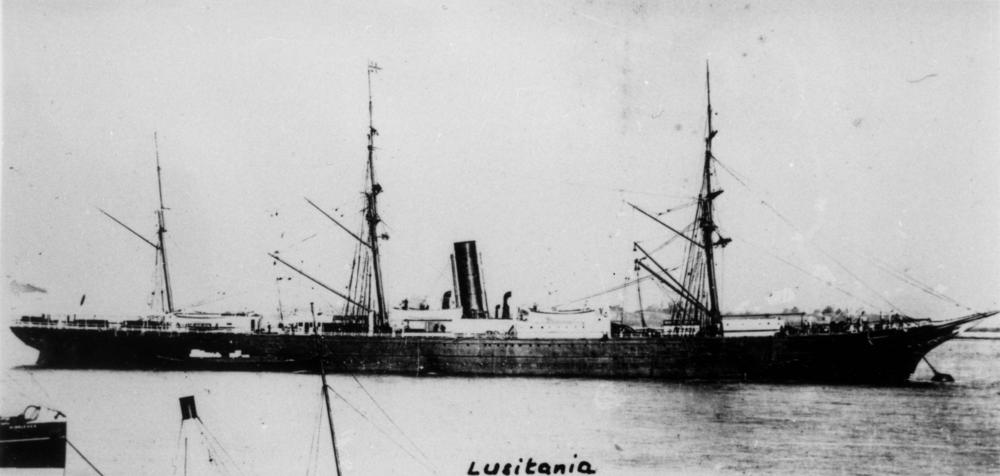My project involved exploring the curatorial processes of the National Maritime Museum for the acquisition proposal of a diary into the Museum’s collection. Currently, there are copyright and ownership issues which restrict me from sharing close details and images of the diary. However, its contents explore the voyage of an individual who was onboard the Lusitania for a voyage from Sydney to London in 1879. He pursued this migration for postgraduate education and training in Medicine. His departure from Australia for the purpose of medical training was highly unique and allowed me to work on original themes which the Museum had not previously engaged with. Furthermore, the ability to work with a personal diary was significant to understand diverse modes of historical writing and testimony. His account improved my understanding of the possibility of historical writing to be highly diverse and take variable forms to express significant experiences and emotions connected with maritime travel.

The main goal of the project was to convey the significance of the authors experiences within his journal and ultimately, acquire his manuscript within the Museum’s collection for display. My project argued the large value of personal journals and diaries to illuminate important details of maritime travel and the conditions of Australian work and education during the 1800s. While working on the project, I was continually reminded of the long-term scarcity of historic personal accounts. Especially considering the journal documented travel departing from Australia to the UK, the ability to have access to the experiences of individuals who have left Australia is highly rare. Discussion with the Head of Knowledge at the Museum, Peter Hobbins, informed me of the large disposal of old manuscript due to individuals being unaware of its historical significance, in conjunction with challenges regarding the authenticity and sensitivity surrounding the publishing of journal details. In light of the difficulties of both accessing and working with diaries, the project largely argued the historical significance and importance of preserving the contents of the 1879 journal.
The project focused on the theme of emigration from Australia. Within the Museum’s collection, diaries and journals are largely centred on the experiences of individuals travelling to Australia for work or starting new lives. The dominant narrative focuses on immigration to Australia to strengthen the national identity and convey the positive experiences of life in Australia. Herein, the journal is important to challenge the dominant theme of immigration to Australia and rather convey the dynamic movement between the British colonies for professional advancement. The authors voyage exposes the limited nature of clinical and medical education in Australia in the 1800s, where his pursuit for improved training in Scotland and England conveys the frequency of travel away from Australia. Hence, the voyage is significant to reveal the agency of Australian citizens to utilise the opportunities available to them within the Empire and subsequently, pursue improved working and education conditions away from Australia. Furthermore, the journal makes large reference to theme of maritime travel. Throughout his account, the author details the multitude of vessels spotted during his travels. The diversity of vessels such as, a schooner, cargo and mail steamships and Arabian dhows convey the high frequency of sea travel in the 1800s.
The project engages with the role of public history in facilitating diverse modes of communicating history. The unique journal manuscript challenges traditional forms of academic history writing and rather privileges the voice of unique individuals to communicate maritime travel in the 1800s. This public history work encourages the use of creative modes of communication that is more inclusive of diverse perspectives. While certain biases may be present within the personal account, the project illuminates how journals can provide unique interpretive and research potential that may not be accessible through traditional primary sources. This is highly important as it can allow modern audiences to also engage with historical writing. Expanding different historical perspectives can encourage diverse individuals to contribute their valuable perspectives and participate in the construction of history, as exampled by the 1879 diary.
I hope that the diary is acquired into the Museum’s collection for the long-term preservation and sustaining of its unique contents. Further, I hope to work with the Museum in the future to transfer the research I conducted in the acquisition proposal to a more accessible form of communication such as, a blogpost for their website or an article in the Museum’s magazine. My experience working with the Maritime Museum and the curatorial, conservation and library team was highly rewarding and informative of the various details involved in public history works. The unique skills learned, and connections made through the Museum allowed for a positive completion of the project.
